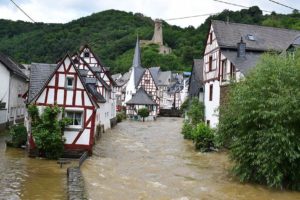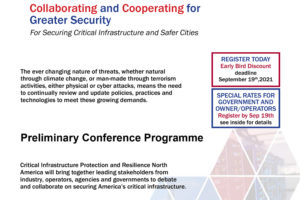Floods in Europe underline need for increased investment in Disaster Risk Management





Download your Preliminary Conference Program guide today at www.ciprna-expo.com/PSG
As the recent Ransomware attacks on Colonial Pipeline, JBS, Dassault Falcon Jet Corp, CNA Financial, and others has demonstrated, as well as the on-going threats from natural hazards/disasters, terrorist attacks and man-made disasters, it is becoming increasingly important for policies and procedures to be implemented to protect our critical infrastructure for a more secure nation.
It gives us great pleasure to invite you to join us at Critical Infrastructure Protection and Resilience North America in New Orleans, Louisiana, for what will be 3 days of exciting and informative discussions on securing North America’s critical infrastructure.
With a leading line up of international expert speakers, sharing their knowledge, expertise and experiences, we know you will find this a most rewarding and enjoyable event and look forward to seeing you in New Orleans, for the next in-person meeting on October 19th-21st, 2021, where we will ensure a safe and Covid compliant environment for discussing how to secure North America's critical infrastructure.
Download your Preliminary Conference Program guide today at www.ciprna-expo.com/PSG and discover more on this premier conference program, expert speakers and showcase exhibiting companies.
Register today and save $$$ on your conference delegate pass with the early bird.
You can register online today at www.ciprna-expo.com/onlinereg
#criticalinfrastructureprotection #resilience #cybersecurity #disasterprevention #riskmanagement #businesscontinuity #government #emergencymanagement #security #infrastructure